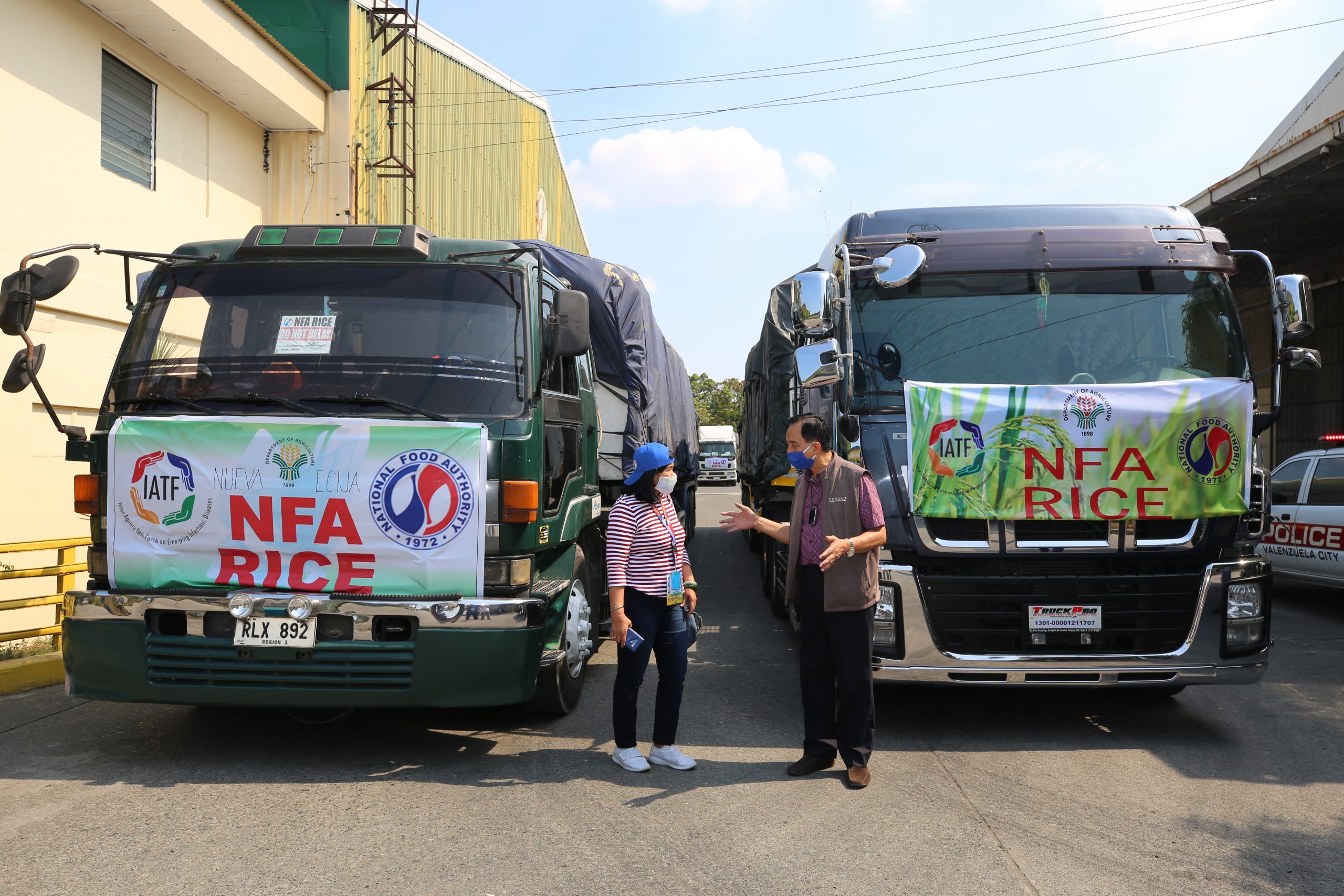
Agriculture Secretary William Dar advises consumers and local government units (LGUs) to continue with their usual trade and only buy food supply that would be enough for their weekly requirements to maintain balance in the food supply chain.
“Let’s not break the food supply chain. If one part of it is distorted, the food supply will be affected. So, let’s not hamper the movement of food supplies and the normal trade should be maintained,” he said.
During Secretary Dar’s inspection of the rice caravan at the National Food Authority (NFA) North District Office, in Valenzuela City, he reiterated that the country has enough supply of basic food commodities such as rice, meat, fish, and vegetables.
He said the Department of Agriculture (DA) appreciates the initiatives of LGUs in procuring directly from their farmers various food products for their constituents but suggests that they limit their procurement of rice in particular to what is required by the locality.
“We would like to assure the public that we have prepositioned enough rice stocks in the country. As long as LGUs will not buy beyond their weekly requirement, so our supply will not be depleted,” he said.
In addition, the NFA will continue to procure the harvest of local farmers and cooperatives, and intensify milling operations to maintain the ideal rice buffer stock level.
“We will see to it that the price of rice in the market will be guided by the prices before the enhanced community quarantine started,” Dar said as he committed to issuing price freeze for local and imported rice.
He also said that there is no reason for consumers to panic as the DA ensures accessibility of fresh and affordable commodities particularly in urban areas through the Kadiwa ni Ani at Kita.
“We have our DA regional field offices moving around provinces, ensuring the movement of food supply from production areas to the markets. We are seeing to it that trucking is not impeded and that basic food items remain affordable,” Dar said.
The Inter-Agency Task Force on Emerging Infectious Diseases (IATF-IED) recently approved the proposal for farmers, fisherfolk, agribusinesses, and other stakeholders in the agriculture sector to be considered as frontliners in the country’s fight against COVID-19. ### (Gumamela Celes Bejarin, DA-AFID)













